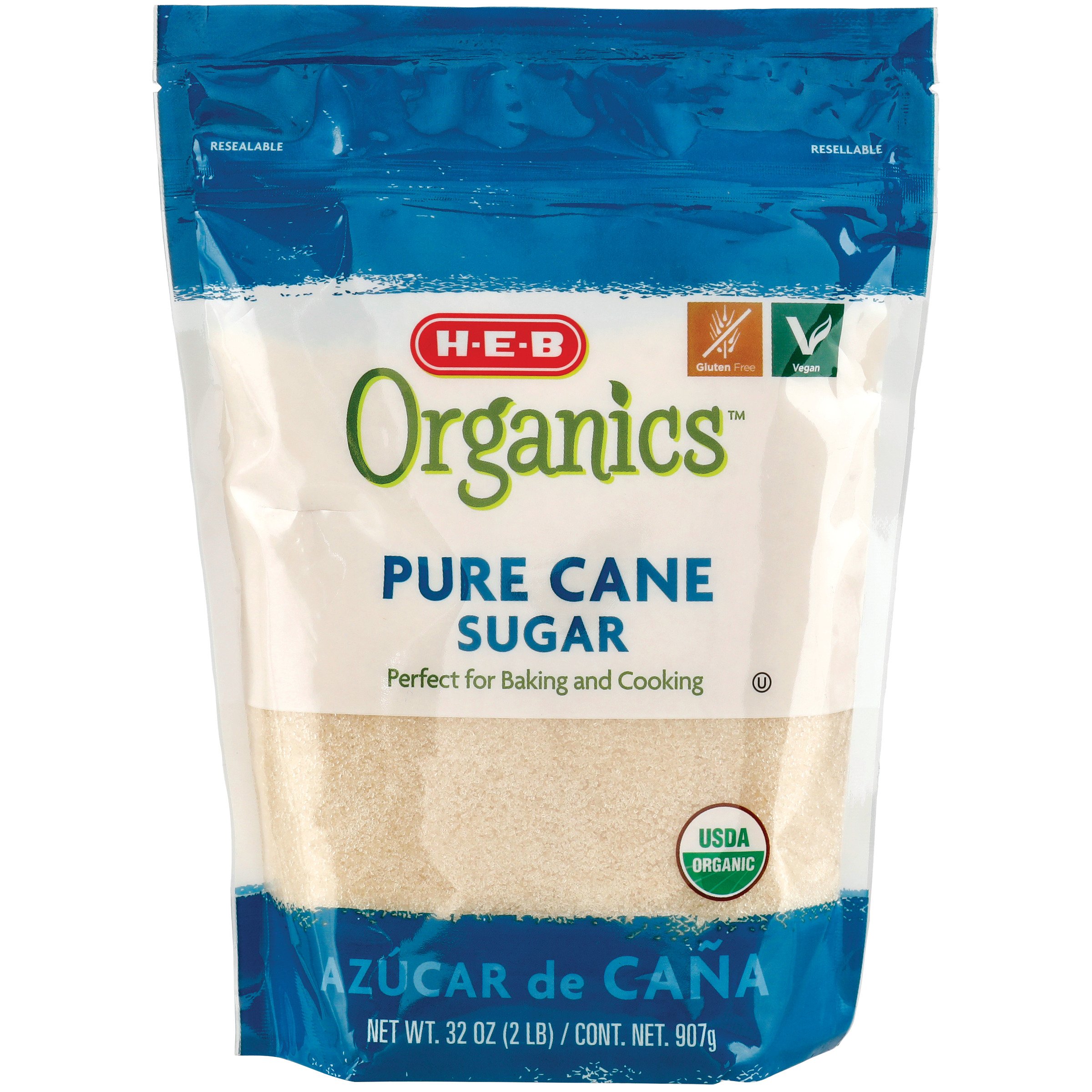The Science Behind Cane Sugar Processing: Just How Sweet Taste is Improved
Wiki Article
An In-depth Introduction of the Health And Wellness and Economic Implications of Cane Sugar Handling on Neighborhood Neighborhoods
Cane sugar processing plays a crucial role fit the financial landscape of local neighborhoods, supplying employment chances and boosting secondary industries. Nevertheless, the wellness ramifications connected with high sugar usage can not be overlooked, as they add to increasing prices of excessive weight and diabetic issues. This nuanced vibrant welcomes a vital assessment of how areas can maximize financial gains while dealing with journalism health and wellness challenges they face. The exploration of sustainable practices and educational efforts may just hold the key to fixing up these clashing interests. What methods might areas carry out to attain this balance?Financial Benefits of Cane Sugar Handling
Cane sugar handling provides significant financial benefits that expand past the immediate farming industry. The cultivation and handling of sugarcane produce many job opportunities, from farming to manufacturing and distribution. This work generation not just sustains regional economic climates however additionally fosters neighborhood growth by giving secure revenue sources for family members.Furthermore, the sugar market promotes supplementary organizations, including transport, equipment supply, and product packaging solutions (Cane Sugar Processing). As these sectors expand, they add to a more robust financial framework, boosting total area durability. The export possibility of processed walking stick sugar additionally intensifies economic benefits, positioning areas as competitive gamers in international markets
Investment in modern processing centers can lead to boosted performance and performance, thus lowering waste and optimizing source use. This change not only benefits the regional economy yet likewise sustains sustainability initiatives by lessening environmental impacts.
Additionally, the earnings created from cane sugar processing can be reinvested in local framework, education, and healthcare, promoting holistic community growth. In general, the economic advantages of cane sugar processing are multifaceted, offering a structure for withstanding success in agricultural regions.
Wellness Threats Connected With Sugar Consumption
Extreme sugar consumption postures significant health and wellness threats that call for significant attention. High consumption of added sugars, especially from refined foods and drinks, has actually been linked to many health complications. One of the most pressing worries is weight problems, as sugary diets add to an increased caloric intake without giving vital nutrients. This extra can lead to metabolic problems, consisting of type 2 diabetic issues, which has actually come to be progressively widespread in both grownups and kids - Cane Sugar Processing.In addition, high sugar intake is connected with heart disease. Elevated blood glucose degrees can result in insulin resistance, a precursor to various heart-related issues. Furthermore, sugar can have detrimental impacts on dental health, causing cavities and gum illness, as bacteria in the mouth grow on sugar, creating acids that wear down tooth enamel.
Moreover, arising research suggests a possible web link in between high sugar consumption and psychological health and wellness conditions, such as depression and anxiety. As communities face these health and wellness dangers, it ends up being important to promote awareness and encourage much healthier nutritional options. Addressing sugar usage is essential not only for individual health and wellness yet additionally for the general health of regional communities, highlighting the need for comprehensive public health and wellness techniques.
Environmental Impacts of Sugar Manufacturing
Regularly ignored in discussions about sugar's implications is the substantial ecological influence of sugar manufacturing. The cultivation of sugarcane great site commonly requires substantial land usage, causing logging, loss of biodiversity, and disturbance of neighborhood environments. The conversion of forests and wetlands into sugar ranches can lead to environment devastation, threatening various types and altering ecological equilibrium.Additionally, sugar production is resource-intensive, consuming significant amounts of water for watering. This can lead to depletion of local water resources, detrimentally impacting both farming methods and area accessibility to clean water. Furthermore, using chemical fertilizers and chemicals in sugarcane farming can add to soil destruction and water pollution, as overflow from these chemicals enters close-by rivers and lakes, influencing water life and human wellness.
The ecological footprint encompasses the processing phase, where power intake and waste generation further worsen eco-friendly concerns. Air contamination from melting sugarcane fields, together with greenhouse gas exhausts, contribute to environment adjustment. Because of this, the ecological implications of sugar manufacturing warrant major consideration, urging stakeholders to take on more lasting practices to reduce these negative impacts on neighborhood communities and neighborhoods.
Task Production and Area Growth
The environmental challenges postured by sugar production are often reversed by its capacity for economic benefits, especially in task creation and community development. The cane sugar sector acts as a considerable resource of work in many backwoods, giving tasks throughout numerous ability levels, from farming labor to handling and distribution duties. This employment not just supports private families yet likewise adds to the general financial vitality of neighborhood neighborhoods.Furthermore, the establishment of sugar handling facilities boosts secondary companies, such as transport services, tools supply, and maintenance service providers. As these businesses thrive, they develop additional work and strengthen regional economic climates. The profits produced from the sugar industry additionally results in increased tax obligation revenues, which can be reinvested right into neighborhood solutions such as medical care, education and learning, and facilities advancement.
Additionally, the sugar sector frequently involves in area advancement efforts, such as sustaining local institutions and health programs, consequently boosting the lifestyle for citizens. By fostering strong you can find out more neighborhood connections and promoting economic development, the walking stick sugar handling sector plays an essential duty in uplifting regional populations, making it an important element of sustainable development strategies in sugar-producing areas.
Balancing Health and Economic Development
In browsing the complexities of walking cane sugar handling, an essential difficulty depends on balancing health and wellness factors to consider with financial development. The sugar sector significantly adds to regional economic situations by creating jobs, boosting relevant industries, and boosting tax obligation incomes. Nonetheless, the wellness implications related to too much sugar consumption can result in persistent conditions such as obesity, diabetes, and cardio issues, which can problem public health systems and reduce labor force efficiency.
In addition, regulatory frameworks can play a critical function in guiding market techniques in the direction of more health-conscious and lasting approaches. By fostering collaboration between government bodies, health and wellness companies, and the sugar market, neighborhoods can navigate the duality of wellness and economic development, making sure that the benefits of walking stick sugar handling are equitably shared while prioritizing public health and wellness.
Final Thought
In final thought, the processing of over at this website cane sugar offers both considerable financial advantages and significant wellness risks for regional communities. While it promotes job production and stimulates regional development, the involved wellness worries, especially relating to weight problems and diabetes, demand a cautious balancing act. By advertising accountable consumption and investing in area education and learning and sustainable practices, it is possible to maximize financial advantages while lessening negative wellness impacts, therefore ensuring a healthier future for neighborhood populaces.In addition, sugar can have destructive impacts on dental health and wellness, resulting in cavities and gum tissue condition, as germs in the mouth thrive on sugar, generating acids that wear down tooth enamel.
Attending to sugar consumption is important not only for private wellness but additionally for the general wellness of local areas, highlighting the requirement for detailed public health and wellness strategies.
Frequently ignored in discussions about sugar's ramifications is the significant ecological influence of sugar manufacturing. The health and wellness ramifications connected with too much sugar consumption can lead to chronic illness such as excessive weight, diabetes, and cardiovascular issues, which can concern public health and wellness systems and reduce labor force performance.

Report this wiki page